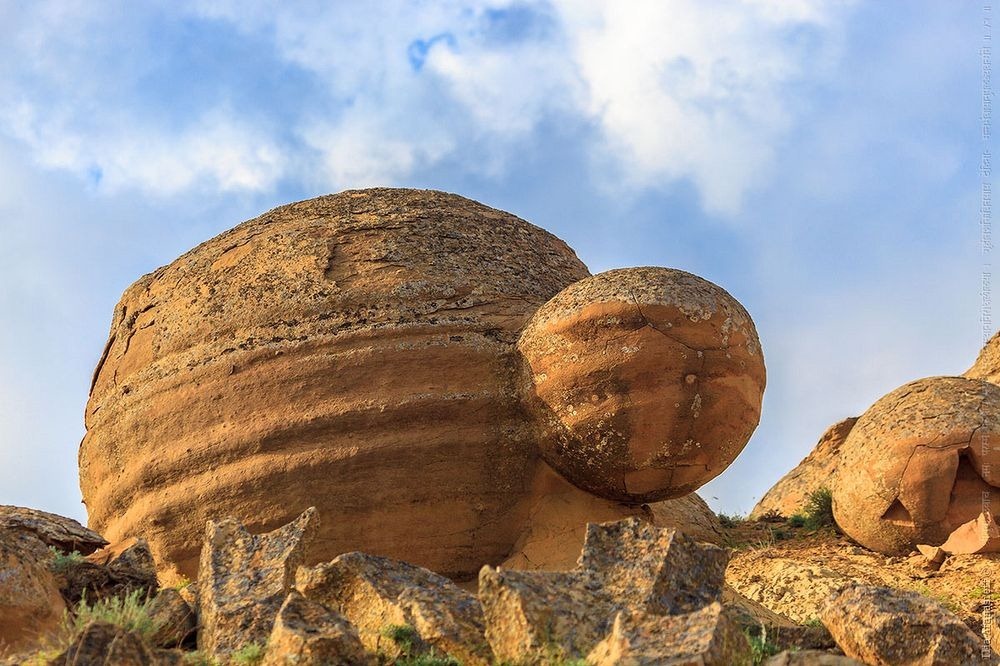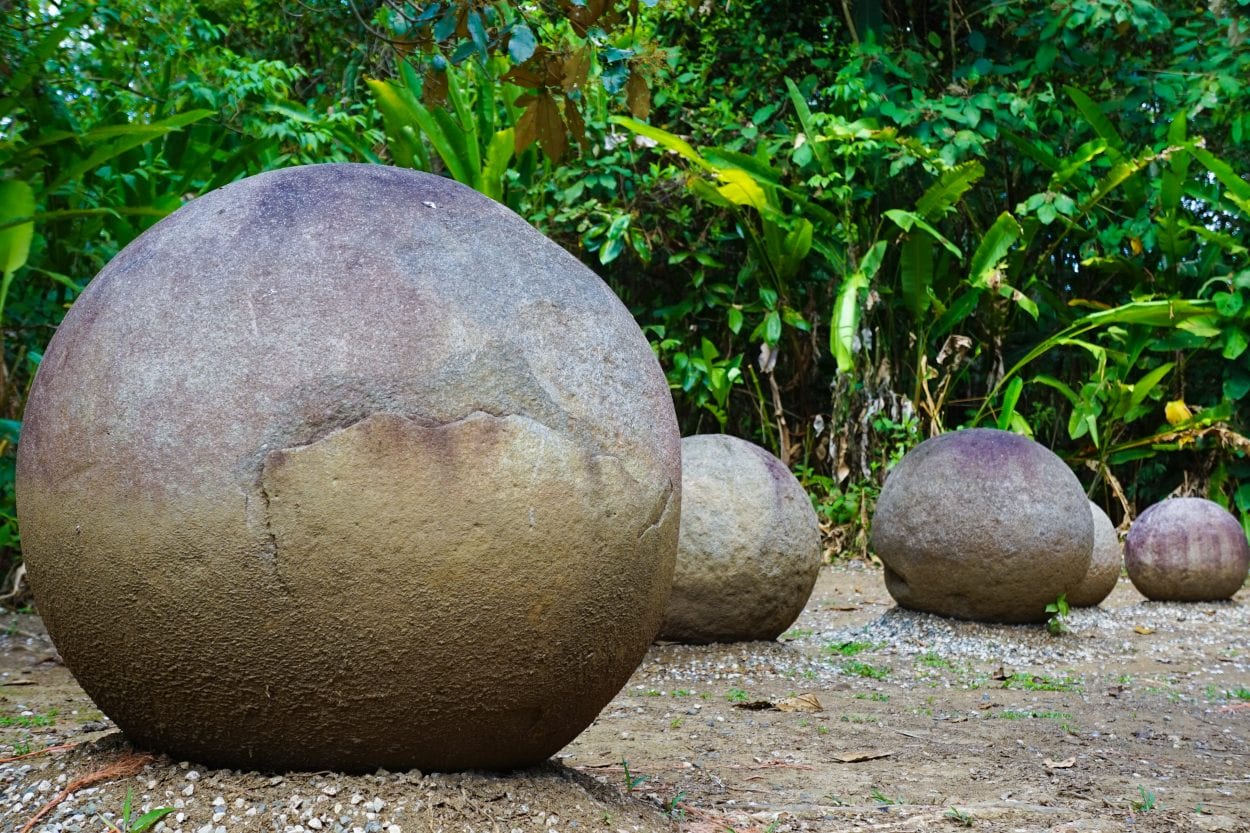 Archaeologists in Kazakhstan have made a surprising and fascinating discovery that has left the world in awe: giant stone eggs that have remained a mystery for thousands of years. The eggs, which range in size from small boulders to almost two meters tall, were found near the village of Shetpe in the Mangystau region of Kazakhstan.
Archaeologists in Kazakhstan have made a surprising and fascinating discovery that has left the world in awe: giant stone eggs that have remained a mystery for thousands of years. The eggs, which range in size from small boulders to almost two meters tall, were found near the village of Shetpe in the Mangystau region of Kazakhstan.
The discovery has sparked curiosity and fascination among scientists and locals alike. Researchers are struggling to determine the origin and purpose of the eggs, which date back to the Bronze Age. Some speculate that they may have been used for religious or spiritual purposes, while others believe they may have served as markers or boundary stones.
One thing that is clear is that the eggs have great significance to the people of Kazakhstan. The eggs have become a symbol of the country’s rich history and cultural heritage. They have also become a source of pride and curiosity for the local population, who see them as a testament to the country’s ancient legacy.
The giant stone eggs are not only significant to Kazakhstan but also to the world. They are a rare and remarkable discovery that sheds light on an ancient civilization that has long been lost to time. The eggs are a testament to the advanced knowledge and skills of the people who created them, and they offer a glimpse into a world that existed thousands of years ago.
Despite the mystery surrounding the eggs, researchers are working tirelessly to unravel their secrets. They are studying the eggs’ composition and structure, looking for clues that might help them understand their purpose and significance. They are also looking at the surrounding area to see if there are any other archaeological finds that might provide more context.
The discovery of the giant stone eggs in Kazakhstan is a reminder that there is still so much we don’t know about our world and its history. It is a testament to the power of human curiosity and the importance of preserving our cultural heritage. As researchers continue to unravel the secrets of the eggs, we can only hope that they will reveal even more about the ancient civilization that created them and the world they lived in.















